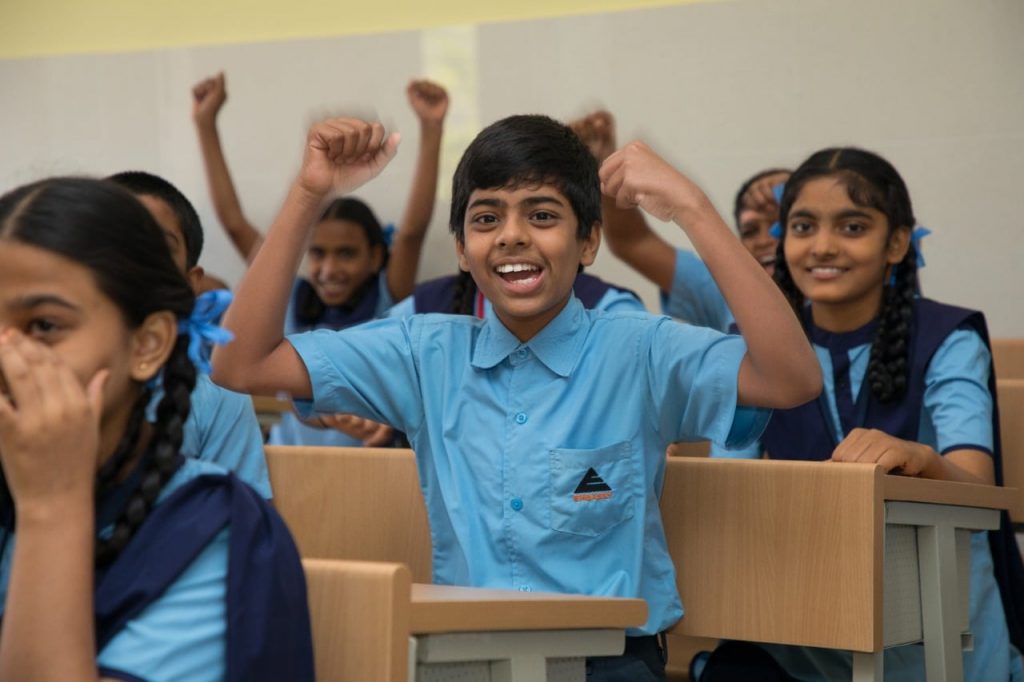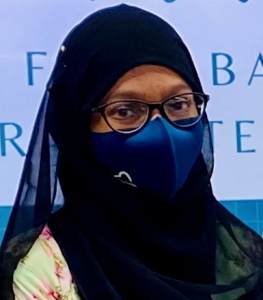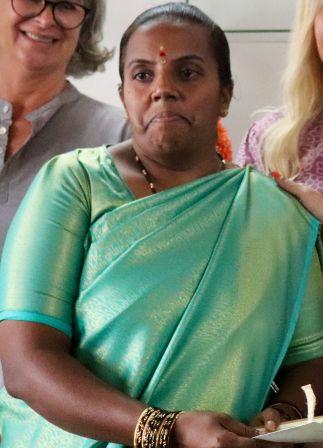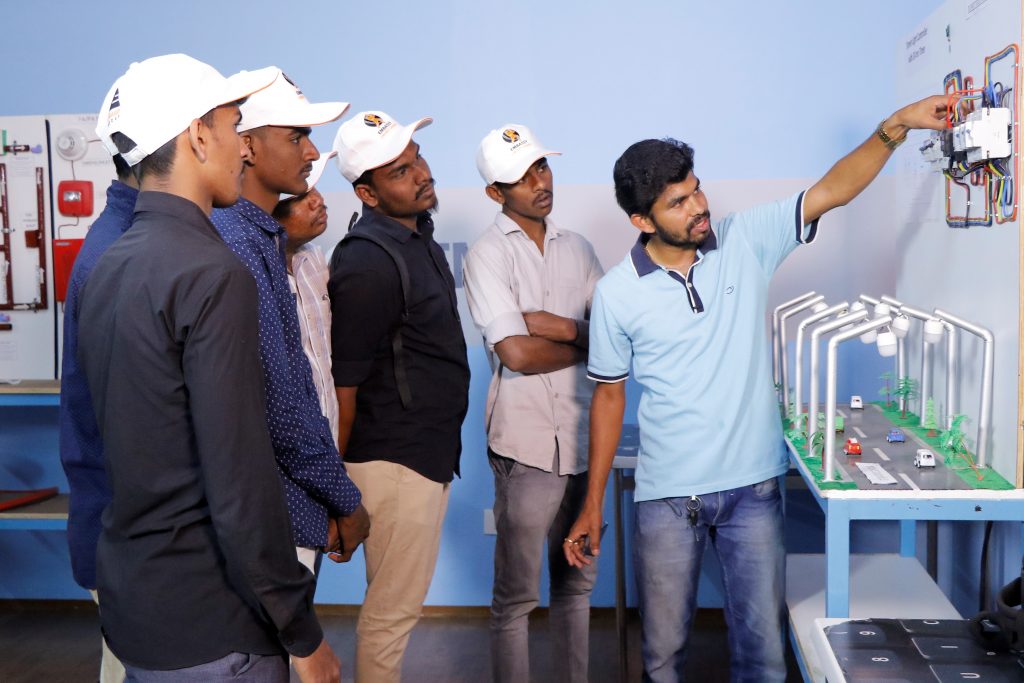

Skill development is a vital means of empowering the youth with a secure future. With over 12 million people joining the Indian workforce annually, the employment rate hit a record low of 36.40 per cent in the second quarter of 2020, and it is still struggling to pick up. Unsurprisingly, the urban poor has found it the most challenging to bounce back from pandemic-related tribulations. India is one of the youngest nations in the world. More than 62 per cent of the population comprises of the working age group; with more than 54 per cent below 25 years of age. We are at a juncture with opportunities for the Government and corporates to collaborate in developing and supporting the next generation. Closing gaps in the educational journey of underprivileged students and moulding an upskilled workforce will go a long way towards contributing to the growth of the Indian economy.
There remain myriad challenges facing India in bridging this skill disparity, including:
- Mobilisation: There is low participation from vocational education students, particularly women. The outlook for this sector is still incredibly traditional.
- Private-public collaboration: For skill development models to succeed, they need to be able to scale with the buy-in from different stakeholders. Without participation from the corporate sector, progress will continue to be slow.
- Lack of infrastructure: There is a lack of sufficient infrastructure to support this huge demand for skilled labour, besides a dearth of skilled trainers.
Our company’s holistic plan target upskilling students from low-income households, which will land them on better career paths. To create a strong network of connecting students to opportunities after they pass out of school, we, along with NGO partner, Colours of Life, founded an alumni programme called the Colours of Life Academy (COLA) in 2017. COLA was meant for students who have graduated or left Embassy-adopted government schools but would like assistance in terms of fees for higher studies, extra tuition, mentorship, and career guidance.
Offering Alternative Career Paths
At the very core of these challenges is the current education system. With oft-outdated infrastructure, a lack of teaching-learning materials and sufficient teachers, government schools and other schools targeted at children from lower-income backgrounds struggle to prepare graduates for a post-schooling world. This is where corporates, through Corporate Social Responsibility, can collaborate with the Government to provide students with an environment conducive to learning through the infusion of educational interventions, social and emotional learning support, scholarships, mentorship, vocational assistance, and more. These interventions will go a long way towards creating a stronger foundation for students to succeed in employment.
We at Embassy Group began our support of government schools in 2012. We provide government school students with a safe learning environment for skill development through holistic educational interventions. Innovative learning support in English, Math, Life Skills and Sports is integrated into the school schedule and enhanced by engaging in extra-curricular activities ranging from educational trips and summer camps to talent development and inter-school competitions.
Our company’s holistic plan target upskilling students from low-income households, which will land them on better career paths. To create a strong network of connecting students to opportunities after they pass out of school, we, along with NGO partner, Colours of Life, founded an alumni programme called the Colours of Life Academy (COLA) in 2017. COLA was meant for students who have graduated or left Embassy-adopted government schools but would like assistance in terms of fees for higher studies, extra tuition, mentorship, and career guidance.
Under this programme, we partnered with Srishti Manipal Institute of Art, Design & Technology to provide educational opportunities to students from lower socio-economic backgrounds under the Embassy Scholars Programme. They are more prone to restrictions when it comes to aspirations — either they are prevented from dreaming big because they do not have the means to achieve their goals, or they have no idea of the range of career paths available to them. This initiative aims to provide an array of alternative livelihood opportunities to students from government schools and boost their exposure to the arts. It also fulfils ours, and that of Srishti Manipal Institute of Art, Design & Technology’s mission of inclusive vocational education.
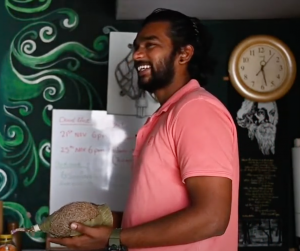 “I am from Baiyapanahalli in Bangalore. I am studying at Srishti under the undergraduate contemporary art practice. My father sold bangles and, before that, tea. He passed away from unfortunate health problems. My mother is the only parent left for our five siblings. Over the years, she worked hard to ensure that we all studied up till the tenth grade,” says Gautham, an Embassy Scholar at Srishti Manipal Institute of Art, Design & Technology. He is an inspiration to the children in his neighbourhood and aspiring artists who believed they could never do their higher studies in art.
“I am from Baiyapanahalli in Bangalore. I am studying at Srishti under the undergraduate contemporary art practice. My father sold bangles and, before that, tea. He passed away from unfortunate health problems. My mother is the only parent left for our five siblings. Over the years, she worked hard to ensure that we all studied up till the tenth grade,” says Gautham, an Embassy Scholar at Srishti Manipal Institute of Art, Design & Technology. He is an inspiration to the children in his neighbourhood and aspiring artists who believed they could never do their higher studies in art.
 “My name is Gokul. I am doing creative manufacturing, designing products and accessories. In six to eight months from now, I want to join a firm as an assistant designer, work as a freelancer, plan for a start-up and apply for my Master’s degree. I want to take on these four things because Srishti has taught me to multitask.” Gokul is a former Embassy Scholar at the Srishti Institute of Art, Design & Technology. He is now brimming with confidence and waiting for the opportunity to take on the real world. He feels that the scholarship programme can help so many students who never got the breaks he did.
“My name is Gokul. I am doing creative manufacturing, designing products and accessories. In six to eight months from now, I want to join a firm as an assistant designer, work as a freelancer, plan for a start-up and apply for my Master’s degree. I want to take on these four things because Srishti has taught me to multitask.” Gokul is a former Embassy Scholar at the Srishti Institute of Art, Design & Technology. He is now brimming with confidence and waiting for the opportunity to take on the real world. He feels that the scholarship programme can help so many students who never got the breaks he did.
With the enormous challenge ahead of us to achieve the nation’s targets for skilling our growing youth population through quality programmes, we need to engender further collaboration between the private and public sectors, allowing both parties to leverage each other’s expertise. Companies have the manpower and knowledge to understand various sectorial needs; it is not enough to only skill our young people, but there needs to be an understanding of the kinds of jobs that can accommodate them.
Changing Perceptions of Blue-Collar Industries
With the enormous challenge ahead of us to achieve the nation’s targets for skilling our growing youth population through quality programmes, we need to engender further collaboration between the private and public sectors, allowing both parties to leverage each other’s expertise. Companies have the manpower and knowledge to understand various sectorial needs; it is not enough to only skill our young people, but there needs to be an understanding of the kinds of jobs that can accommodate them. The private sector stands to benefit from the availability of skilled manpower, allowing them to become more future-ready with a more effective and productive workforce. It is, therefore, in the best interest of corporations to prioritise building productivity amongst the working-age population across industries.
Corporates have the potential to deliver quality programmes, either through partnering with vocational centres or creating their own; under CSR. Companies can then absorb these students into their workforce once fully trained. We launched a Facility Management (FM) Skilling programme, curated by our Service Facility Wing – TCFM (Technique Control Facility Management), and Mentric Solutions to enhance employment opportunities for government school students and arm them with the skills and knowledge to join the workforce. This specialised programme is for students who have passed out of our Group’s adopted government schools in Bangalore.
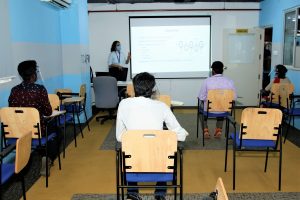 The FM Skilling programme aims to bridge the skill gap through Mentric ALL (Mentric’s Learning Management portal) and offline training. Students also receive assessments on their learning journey through their customised rubrics, get equipped with relevant practical knowledge, and receive soft skills and job
The FM Skilling programme aims to bridge the skill gap through Mentric ALL (Mentric’s Learning Management portal) and offline training. Students also receive assessments on their learning journey through their customised rubrics, get equipped with relevant practical knowledge, and receive soft skills and job  readiness training. After completing a four-month training course from the state-of-the-art practical training centre customised by TCFM, the upskilled students are awarded well-paying jobs in TCFM and other partner organisations.
readiness training. After completing a four-month training course from the state-of-the-art practical training centre customised by TCFM, the upskilled students are awarded well-paying jobs in TCFM and other partner organisations.
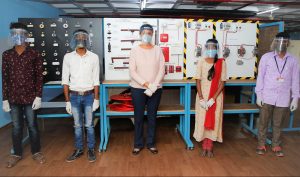 The fast-growing FM sector in India requires educated and skilled youth. Since this sector largely contributes to the blue-collar workforce employment, we saw this as our responsibility as a leading IFM organisation to provide opportunities to our youth. The aim is to reaffirm that FM is a great career choice with
The fast-growing FM sector in India requires educated and skilled youth. Since this sector largely contributes to the blue-collar workforce employment, we saw this as our responsibility as a leading IFM organisation to provide opportunities to our youth. The aim is to reaffirm that FM is a great career choice with  enormous scope for growth. Through this programme, we hope to develop and help the next generation of blue-collar employees contribute to the growth of the Indian economy through our upskilled workforce and close any gaps in the educational journey of underprivileged students.
enormous scope for growth. Through this programme, we hope to develop and help the next generation of blue-collar employees contribute to the growth of the Indian economy through our upskilled workforce and close any gaps in the educational journey of underprivileged students.
|
Providing Skills for a Sustainable Livelihood
We also launched another skill development initiative aimed at government school alumni, underprivileged youth, and their families. To encourage various skill-based initiatives, along with NGO partners – The Anonymous Indian Charitable Trust (TAICT) and YuvaLok Foundation, we unveiled a new Skill Development Centre earlier this year. The new centre at Tarahunise, North Bangalore, with vocational training programmes, intends to develop sustainable livelihood skills for government school alumni and their families.
Aimed at combatting the challenge of pandemic-induced unemployment and a lack of job readiness, the Centre provides numerous courses and programmes. One of the courses offered is a six-month tailoring programme called “Threads of Life” that equip trainees with the skills and certification required to join a garment factory or start a small tailoring business of their own, providing a sustainable income. Upon completion of the course, participants receive their own sewing machines. Apart from this, trainees also attend workshops on health, nutrition, and other soft skills that help build their careers and be useful in any job or field they choose.

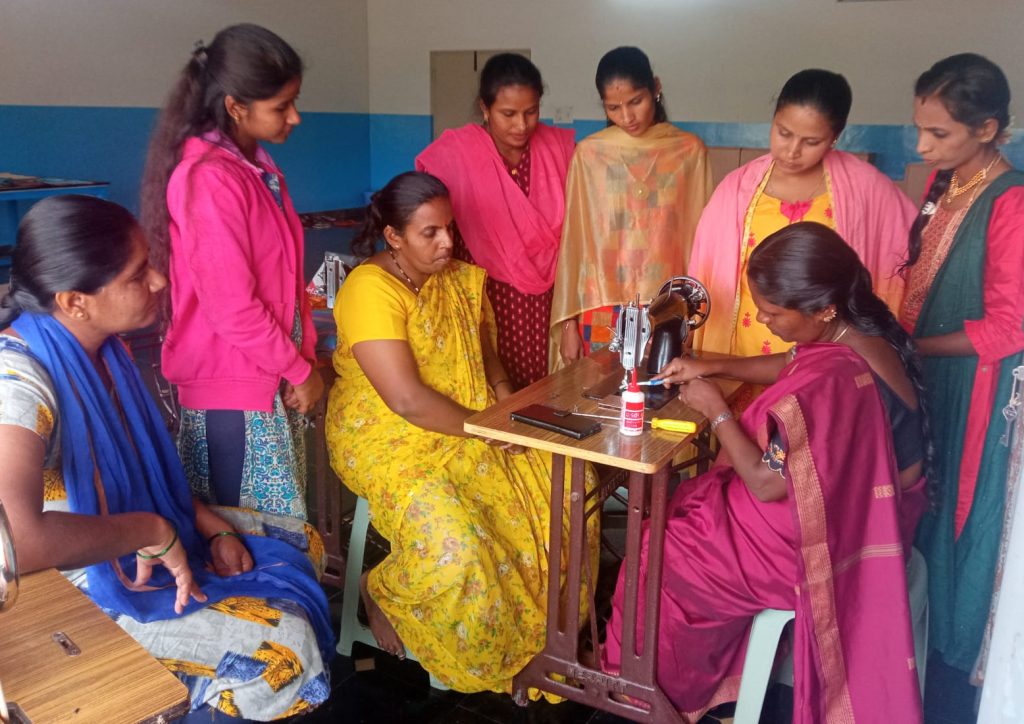
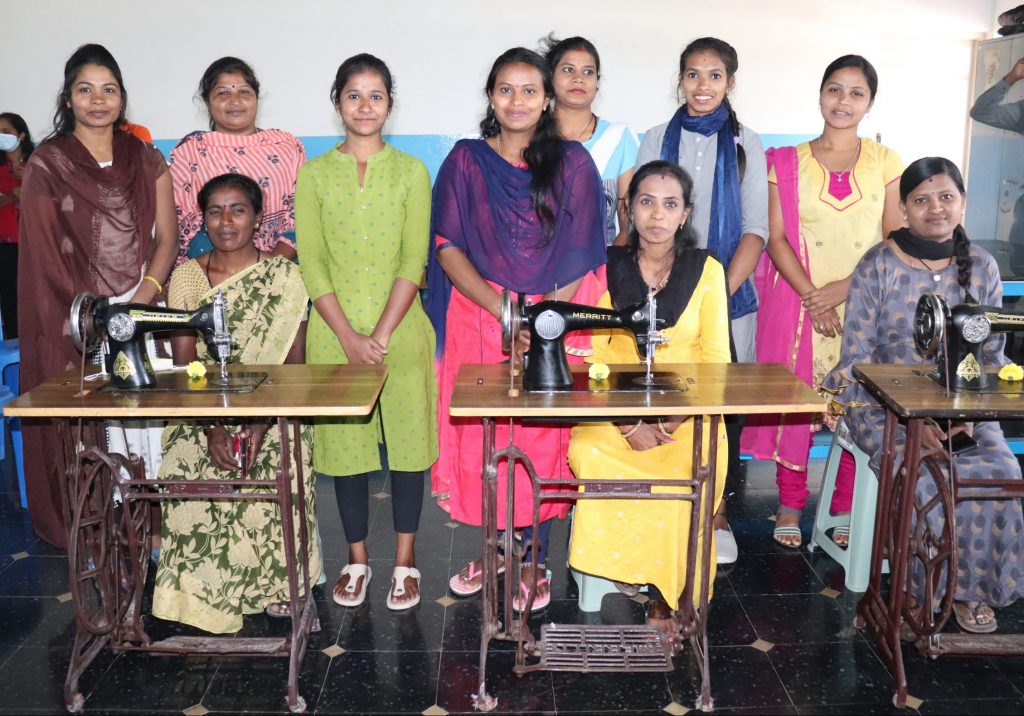
Thanks to the Skill India Mission 2015, there is ample opportunity for companies to seriously think about how they can aid in bridging our country’s growing skill gap. The impact will not take place without public-private partnerships. By engaging with the Government and implementing agencies, corporates can contribute to much-needed training programmes that will benefit the nation’s growth.
Sam Rajshekhar, Founder & Executive Director, YuvaLok Foundation, said, “Our aim is to make sure that every individual from the State is well equipped and trained with sustainable livelihood skills. With this agenda in mind, our Foundation, along with Embassy, introduced a new development centre to support underprivileged people with appropriate training and build on their skill sets. The current programme will help in fostering skill development in these times and in the coming future too.”
|
Thanks to the Skill India Mission 2015, there is ample opportunity for companies to seriously think about how they can aid in bridging our country’s growing skill gap. The impact will not take place without public-private partnerships. By engaging with the Government and implementing agencies, corporates can contribute to much-needed training programmes that will benefit the nation’s growth.
As we look towards the future, we have increased our focus on extending support for students after they leave government schools. We believe that investing in skill development programmes and training youth with the best knowledge and expertise will pave the way for individuals who lack sufficient resources for learning. As a responsible corporate, we will continue to focus on programmes that will facilitate skill development in India and overall youth training. These programmes, curated with the support from our NGO partners, will support our nation’s efforts to drive inclusive growth, creating greater social equity and opportunities for all.


